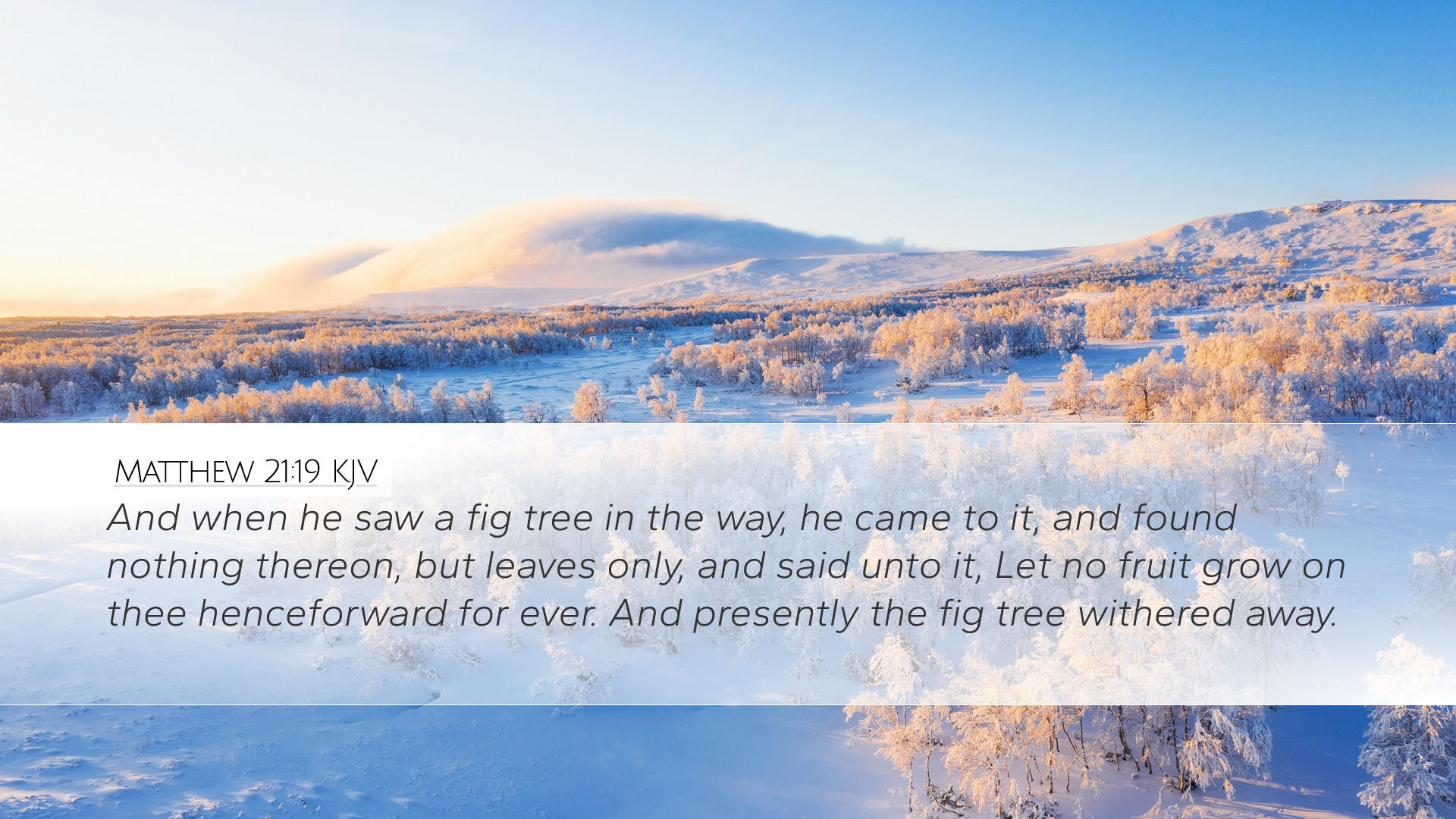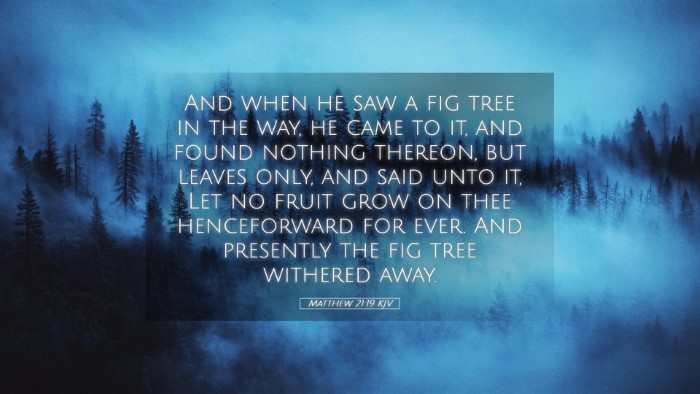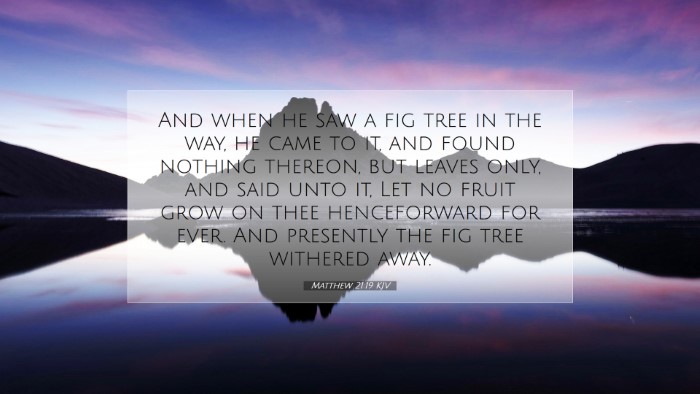Commentary on Matthew 21:19
Matthew 21:19 states, "And seeing a fig tree by the roadside, he went to it and found nothing on it but only leaves. And he said to it, 'May no fruit ever come from you again!' And the fig tree withered at once."
Context and Introduction
This verse occurs within a significant narrative in the Gospel of Matthew, where Jesus is making His final journey to Jerusalem before His crucifixion. The act of cursing the fig tree serves both as a prophetic symbol and a tangible expression of Jesus's authority.
Symbolism of the Fig Tree
The fig tree is a recurring symbol within Jewish scripture, often representing Israel or the spiritual state of the people. In this context, it symbolizes the nation of Israel's unfruitfulness. As Matthew Henry notes, "The fig tree is a representation of the Jewish nation which, by the law, was planted in the vineyard."
This act of cursing the tree indicates a severe judgment upon a nation that is barren of spiritual fruit, despite the outward appearances of religious activity.
The Significance of Leaves without Fruit
The narrative emphasizes the disparity between outward appearance and inward condition. The fig tree bore leaves, signifying its potential for fruit, but upon closer inspection, it revealed a lack of produce. Albert Barnes comments, "This fig tree shows the absurdity of profession without practice, of a name without reality."
The presence of leaves suggested that the tree was healthy, yet it failed to fulfill its purpose, thus provoking Jesus's condemnation.
Jesus's Authority
Jesus’s pronouncement over the fig tree illustrates His divine authority to judge and to act decisively. Adam Clarke remarks, "It was no casual work that Jesus did; it was an act that had immense significance, expressing both His power and the impending judgment on Jerusalem." The immediate withering of the tree serves as a miraculous demonstration of His power and a foretelling of the destruction that would soon come upon Jerusalem due to its unrepentance.
Spiritual Implications for Believers
This passage serves as a sober reminder for the church and individual believers regarding the importance of bearing fruit. Matthew Henry asserts, "It is not enough to have the leaves of a profession; we must bring forth fruit, evident of a life in Christ." The narrative challenges believers to reflect on their spiritual lives, ensuring that their faith is not merely nominal but is evidenced by good works and the fruit of the Spirit.
Lessons on Judgment
The cursing of the fig tree carries with it a lesson on divine judgment that is applicable across generations. There exists a danger in complacency and routine in one’s spiritual journey. Albert Barnes emphasizes that "the judgment pronounced here indicates what we might expect from God, who seeks fruit from those whom He has blessed."
-
Main Point: Judgment begins at the house of God, as indicated in 1 Peter 4:17.
-
Application: Believers should examine themselves regularly for spiritual fruitfulness.
Concluding Thoughts
The account of Jesus cursing the fig tree is rich in meaning and provides deep insights into the nature of faith, fruitfulness, and divine judgment. As believers seek to follow Christ, they must strive for a genuine faith that produces lasting fruits, being vigilant against the dangers of mere outward appearances.
In the words of Adam Clarke, "Let us not only be hearers of the Word but doers also, bearing fruit that glorifies God, lest we also face similar judgment."


